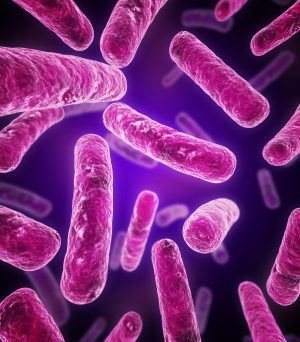
Most of us desire smooth, youthful-looking skin, free from lines and wrinkles. Did you know that vitamin K2 can play a crucial role in achieving this goal? Recent research suggests that a deficiency in vitamin K2 can lead to severe premature skin wrinkling. So, let’s explore how vitamin K2 can protect our skin’s elasticity.
One of vitamin K’s primary actions in the body is the activation of matrix GLA protein (MGP). This protein inhibits calcium from depositing in our elastin fibres, which are responsible for our skin’s ability to bounce back and smooth out lines and wrinkles.
Just like vitamin K2 prevents calcification in the cardiovascular system, it also prevents the calcification of our skin’s elastin. In other words, it keeps the fibres from hardening and causing wrinkles. So, if you’ve been noticing wrinkles and persistent laughter lines, it might be a sign that your body lacks optimal levels of vitamin K2.
Now, here are some essential facts to consider:
Diet alone may not provide sufficient vitamin K2 for its calcium-regulating activities. Vitamin K2 can be found in Natto (a fermented soy product mainly eaten in Japan), a few hard cheeses (if the cows have been grass fed) and some organ meats. As we don’t typically eat much of these food types it can be very beneficial to take a daily vitamin K2 supplement.
Unlike other fat-soluble nutrients, such as vitamins A, D, and E, vitamin K is not stored in the body and must be replenished daily. Even with the production of vitamin K2 by healthy intestinal bacteria, a deficiency can develop in as little as seven days on a vitamin K-deficient diet.
Absorption of vitamin K depends on healthy liver, gallbladder and digestive function, similar to other fat-soluble nutrients. People with digestive issues like coeliac disease, irritable bowel disease, or those who have undergone intestinal bypass surgery are much more likely to experience vitamin K2 deficiency due to increased fat malabsorption.
If you consume processed or fast foods that contain hydrogenated oils, your risk of functional vitamin K deficiency is also significantly higher, because the hydrogenation process used in manufacturing these oils converts vitamin K2 into an inactive form, incapable of activating essential proteins.
As we age, our vitamin K requirements increase. Older individuals, especially those over 60, need higher levels of vitamin K to maintain low levels of inactive vitamin-K dependent proteins.
By supporting the suppleness of our skin and arteries, vitamin K2 adds a new dimension to the saying, “Beauty comes from within.” Although research on the topical application of vitamin K is in its early stages, it’s possible that high-end cosmetic companies may soon incorporate this nutrient into their creams and serums. In the meantime, taking a daily vitamin K2 supplement can be a wise choice, benefiting not only bone health but also potentially reducing the appearance of wrinkles.
In conclusion, vitamin K2 plays a crucial role in preventing wrinkles and maintaining youthful skin. So, ensure you’re getting adequate amounts of this essential nutrient to enjoy the benefits it offers.
References:
Cranenburg EC, Schurgers LJ, Vermeer C. Vitamin K: the coagulation vitamin that became omnipotent. Thromb Haemost. 2007 Jul;98(1):120-5. PMID: 17598002.
Gheduzzi D, Boraldi F, Annovi G, DeVincenzi CP, Schurgers LJ, Vermeer C, Quaglino D, Ronchetti IP. Matrix Gla protein is involved in elastic fiber calcification in the dermis of pseudoxanthoma elasticum patients. Lab Invest. 2007 Oct;87(10):998-1008. doi: 10.1038/labinvest.3700667. Epub 2007 Aug 27. PMID: 17724449.
westonaprice.org/health-topics/abcs-of-nutrition/on-the-trail-of-the-elusive-x-factor-a-sixty-two-year-old-mystery-finally-solved/




